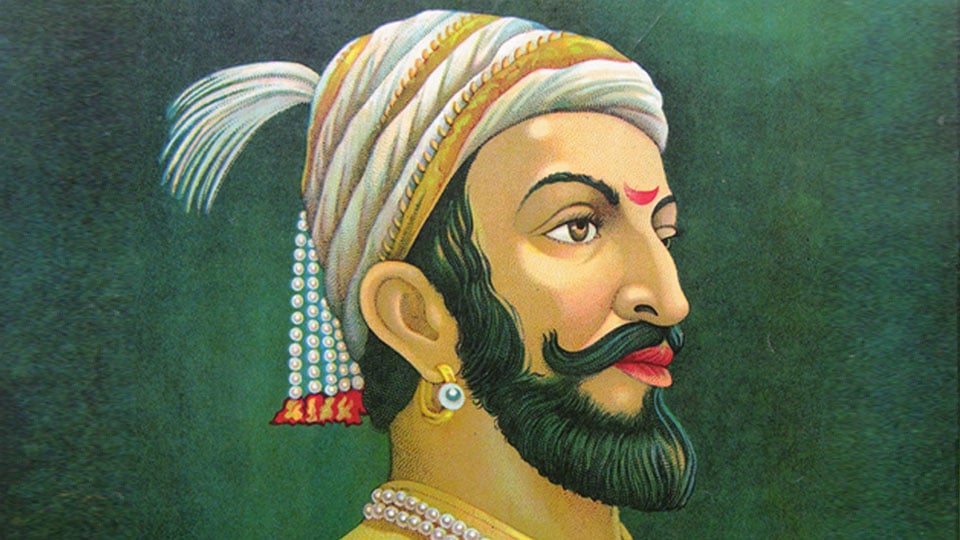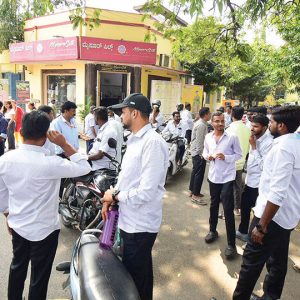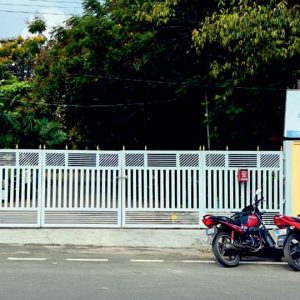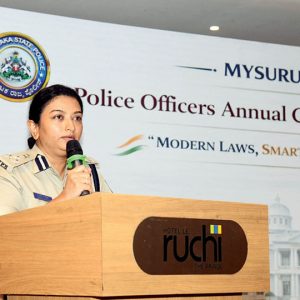Shivaji sacks Aurangzeb’s Surat
English merchants of Surat exhibit courage and principles!
[Continued from Mar. 7]
The failure of Aurangzeb’s uncle Shayista Khan to defeat Shivaji and capture his Forts caused the utmost consternation in Delhi and Agra. The Emperor Aurangzeb wrote coldly to his uncle Shayista Khan relieving him of his command and transferring him to the Governorship of Bengal, an inferior appointment. Prince Muazzam, the Emperor’s son who was idle and comfortably fond of hunting and Polo, succeeded Shayista Khan.
This done, Aurangzeb’s favourite sister Roshanara, who was known for Palace intrigues set her heart on a visit to Kashmir. Roshanara was perhaps the only person whom Aurangzeb cared for and as such did not want to disappoint her. The cortege of the Emperor began its journey towards Kashmir while Prince Muazzam, the newly-appointed Chief of the Deccan, was busy playing Polo and giving parties. Incidentally, the name of the late Field Marshal K.M. Cariappa’s bungalow in Madikeri, Kodagu, is Roshanara.
In the meanwhile, Shivaji in revenge for the occupation of Pune was preparing for an attack on Surat where pilgrim fleets were carrying devout Muslims going to Mecca. Therefore, Surat was also the most important port city for Mughals, as also a city of factories for the foreign traders from China, France, England, Denmark and Portugal. It made a natural port because Surat is on the banks of river Tapti. It was a rich city where rich merchants and business-persons lived.
In December 1663, Shivaji went to the city disguising as a beggar looking very ragged and dirty with a bamboo staff and a begging bowl to conduct a recce of the roads and important houses of Surat. A few days later, Shivaji reappeared in his camp with 4,000 cavalry. In January 1664, Shivaji attacked Surat and looted the city. The Mughal Governor was not prepared to face Shivaji so much so that he shut himself up in his Palace leaving the town to the mercy of the Maratha soldiers. Shivaji gave permission to his troops to sack the deserted city. The only resistance, according to an English historian, came from English merchants. But Shivaji used his cunning and negotiating skills and extracted as much as he wanted from these merchants as well without engaging them in a fight.

Shivaji’s peculiar approach in dealing with foreigners of the city was much appreciated by the foreign merchants. It is recorded that a French missionary presented himself before Shivaji and begged that his converts and Christian missionaries should not be harmed. Shivaji received the missionary with great kindness and issued a proclamation that the houses of Christian Fathers should be exempt from the sack. The sacking of Surat by Shivaji lasted for four days when houses, factories and shops were looted systematically and methodically.
In the meanwhile, Mughal Governor, after brooding for two days behind the walls of his Fort sent out a young officer to assassinate Shivaji. Shivaji agreed to meet the young officer and greeted him with gifts saying that the Mughal Governor was sitting like a shy girl in his Palace. The young officer evidently did not like this derogatory remark and moved towards Shivaji with a dagger. Instantly a Maratha guard sprang forward and chopped off the Mughal officer’s hand and as he collapsed cut through his skull.
Interestingly, it is recorded that while Shivaji ordered four of his Mughal prisoners to be beheaded and the hands of 24 others to be cut off, one of the prisoners led out to execution was an Englishman. This was revealed when he took off his hat and his complexion proclaimed his nationality. Shivaji at once released him and sent him under escort to the English factory. Can we not say that this is a typical instance of the special regard the Indians had for the whiteman, which we have seen during the British rule in India? Probably, this mindset was there even at the time of Shivaji !
Marathas had collected enormous booty and were returning to Raigad, Shivaji’s capital. But on a Sunday morning news came that a Mughal army was advancing to the relief of the city of Surat, while another battalion of Mughal army was speeding down the coast to Raigad.
This particular one incident must be mentioned here for the reason that the British always wanted to demonstrate that they were courageous people with high sense of pride, not succumbing to the temptations of frivolous honours.
When the Mughal army reached Surat, the Mughal Governor came out of his Fort to receive the Mughal General of the newly arrived army. The people of Surat complained against the Governor for his cowardice before Shivaji’s soldiers and praised the bravery of the English who challenged Shivaji’s soldiers during the sack. They wanted the Mughal General to give some award to the English President of the Surat factories. Accordingly, the Mughal General called on the English President Sir George Oxenden and offered him the reward of a gold vest, a horse and a sword.
But Sir George Oxenden in the spirit of modesty and fastidious conduct declined these gifts saying that “They were becoming of a soldier, but we were merchants.” In short, he was saying, “I cannot accept this reward meant for soldiers because we are not soldiers. We are only merchants.”
You cannot beat an Englishman in his ability to rise to an occasion and get admired for his moral high or success. No wonder, the renowned British author George Bernard Shaw has described an Englishman in the following manner:
“There is nothing so bad or so good that you will not find an Englishman doing it; but you will never find an Englishman in the wrong. He does everything on principle. He fights you on patriotic principles; he robs you on business principles; he enslaves you for imperial principles.”
[To be continued]
e-mail: [email protected]








Recent Comments